Anne of Cleves was lucky. Not only did Henry VIII’s fourth wife keep her head when the infamously mercurial Tudor annulled their marriage, she received a generous settlement which included the Nitimbreha (“newly timbered”) valley, deep in the Sussex countryside. Its picturesque acres were so valuable that they were included in 1085’s Domesday Book, a comprehensive survey of England considered one of history’s most important records.
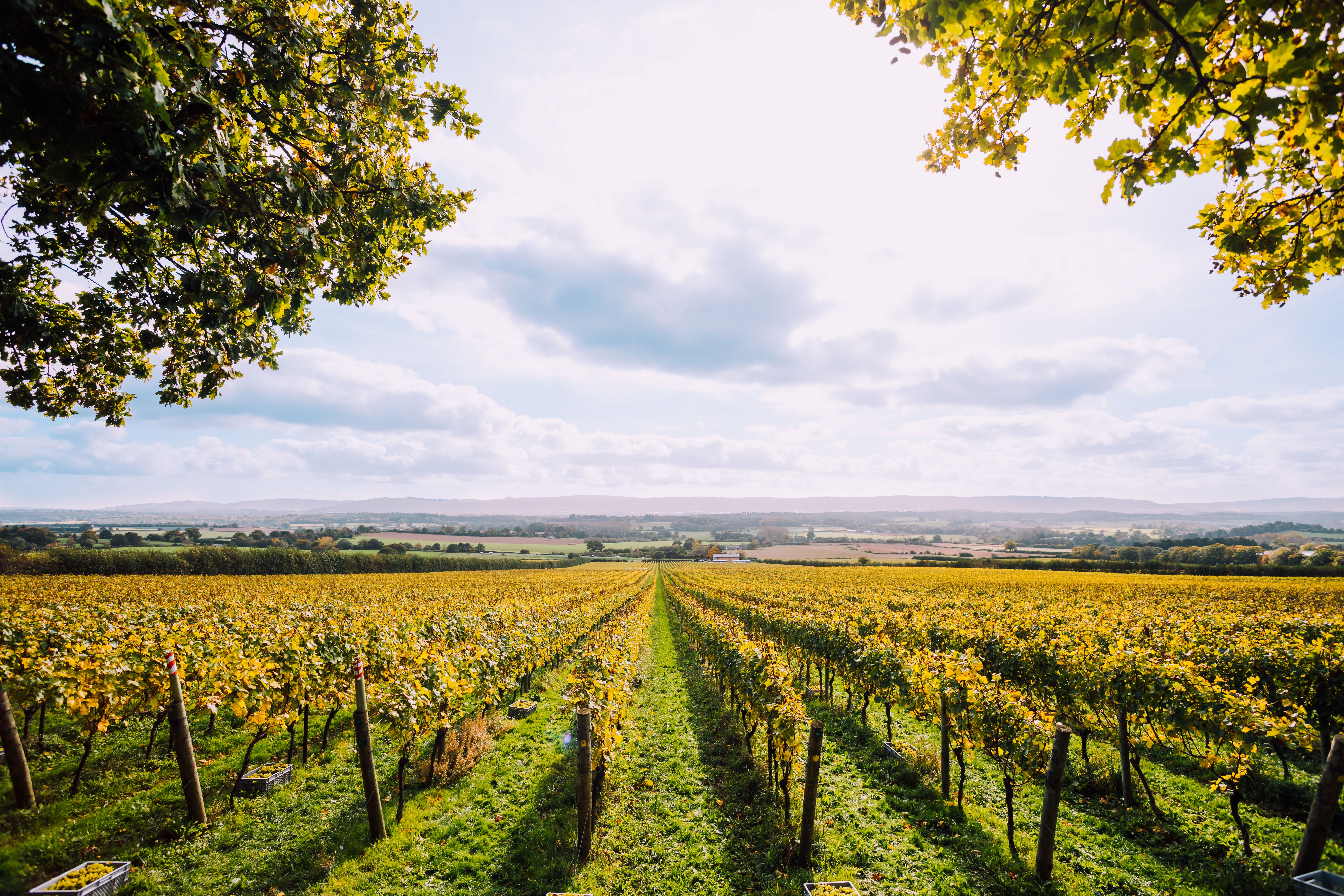
Fortune again favors the estate — now named Nyetimber — but its successes are no mere coincidence. First established in 1988 by an American couple, it was the first English wine estate to import wine making expertise from Champagne, and the first to focus on Pinot Noir, Pinot Meunier and Chardonnay champagne grapes with the express purpose of making sparkling wine.
After a brief interlude (when a musician took ownership), a new era for the estate began in 2006, when it was purchased by Dutch businessman Eric Heerema, a wine enthusiast who unites bold ambition with the business acumen that has made his family name well known in Holland for offshore investment.
“My ambition is to turn Nyetimber into one of the finest winemakers in the world and a global brand,” says Heerema, who during his tenure has expanded the size of the estate 20-fold (currently 260 hectares across West Sussex, Hampshire and Kent), and invested in state-of-the-art facilities including a new pressing centre.
Luck was on Heerema’s side too. Soon after he took over, he was contacted by Canadian winemakers Cherie Spriggs and her husband Brad Greatrix, who decided to “apply for their dream jobs” after being inspired by a bottle of Nyetimber brought back by Sprigg’s English father.
Their mutual gamble paid off in spectacular fashion — Head Winemaker Spriggs was named Sparkling Winemaker of the Year at 2018’s International Wine Challenge, making it the first time a winemaker from outside Champagne has wrested away the award, and the first time a woman has won.
- EARLY ISSUES
- THE RISE OF BRITISH BUBBLES
Early Issues
“When Brad and I joined Nyetimber over 12 years ago now, there were a variety of challenges. There were some concerns that the released wines from Nyetimber before we joined lacked consistency in quality,” says Spriggs.
“We worked very hard on perfecting the various details of the winemaking process that needed work, and we also introduced our multi-vintage wines into the portfolio. These were years in the making as reserve wines were never kept prior.”
Nyetimber currently has nine vineyard sites across Southern England: five in Sussex, two in Hampshire and two in Kent. The chalk soils in its Hampshire vineyards and Greensand soils in its West Sussex vineyards are the same as those in Champagne.
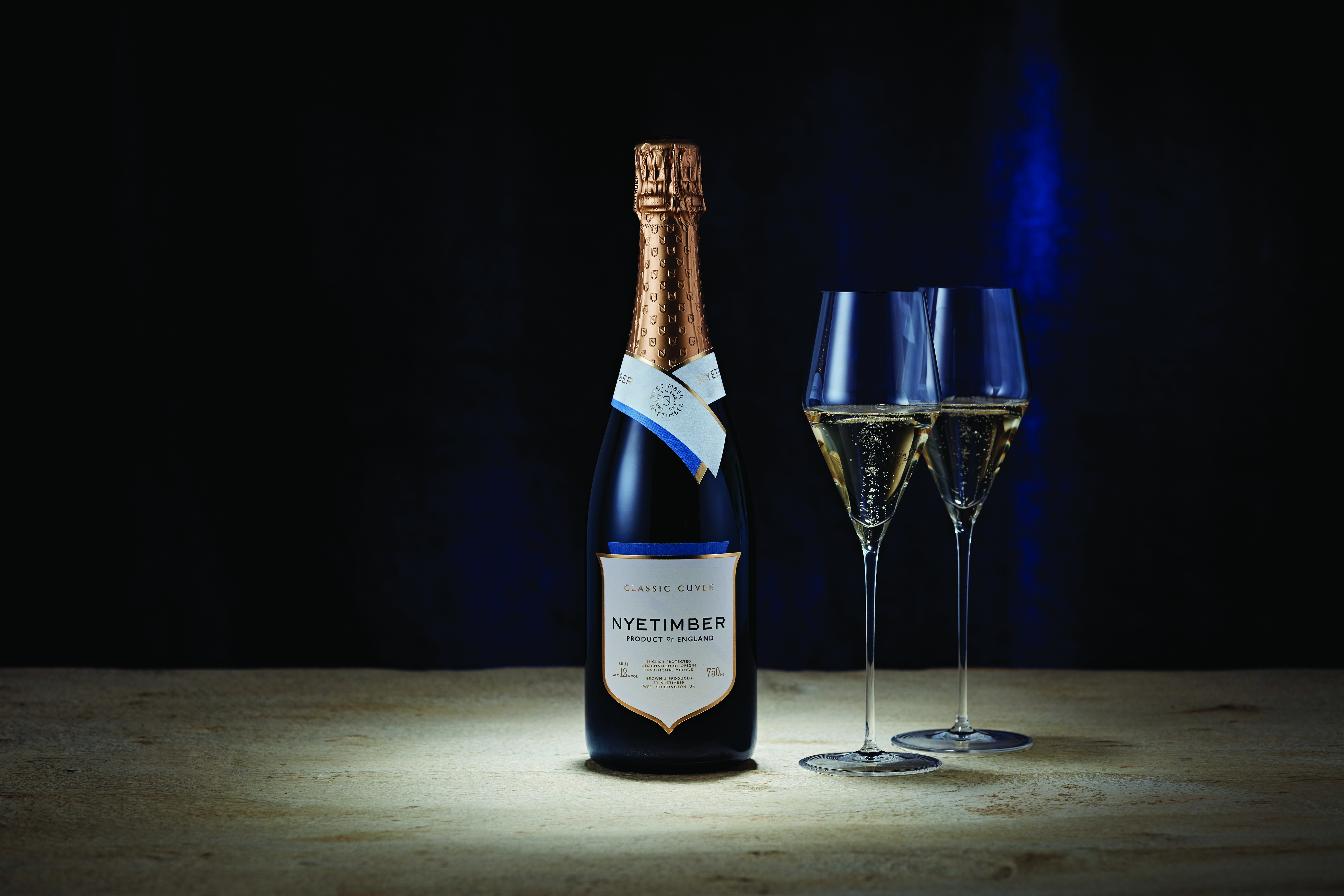 Nyetimber Classic Cuvee
Nyetimber Classic Cuvee
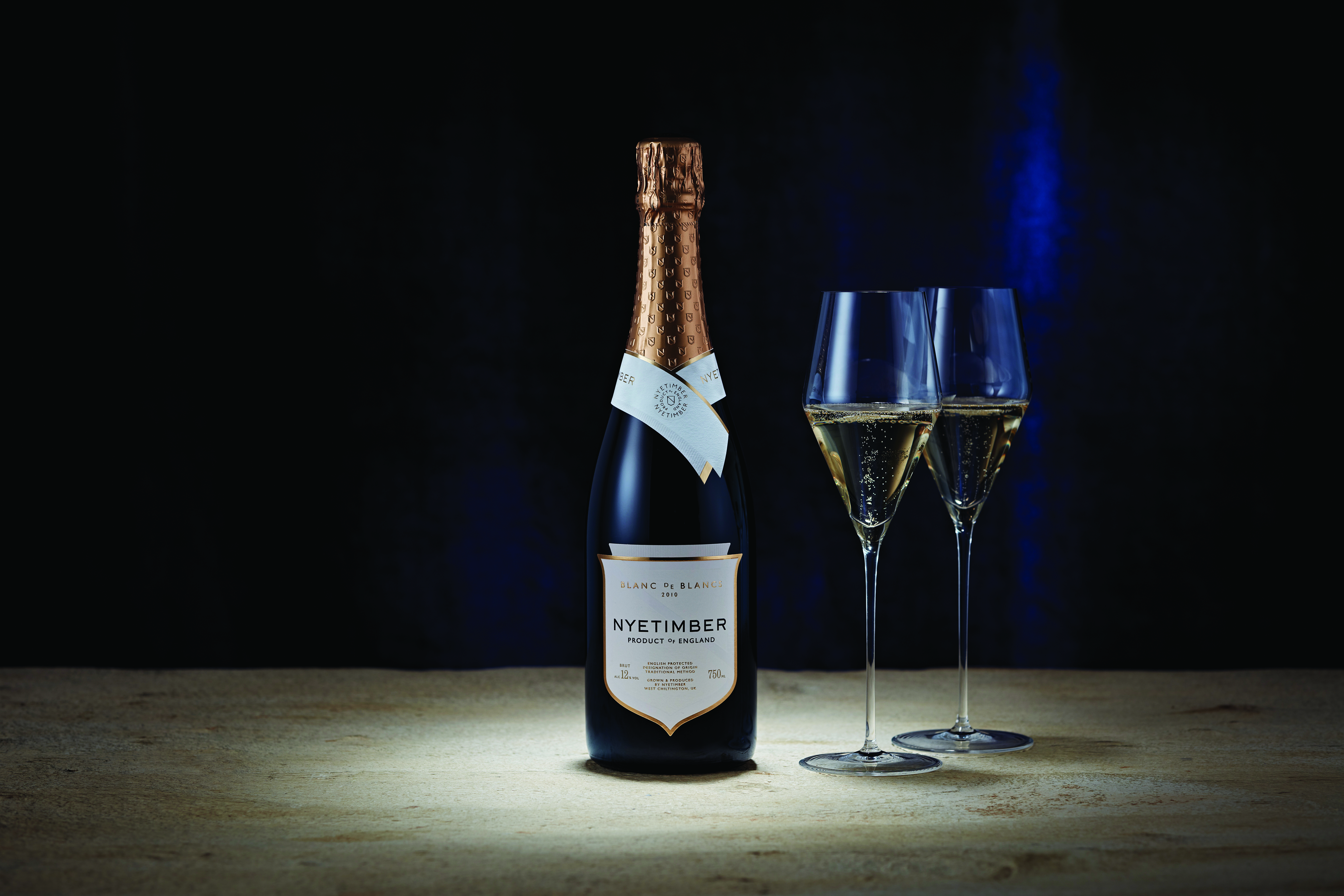 Nyetimber Blanc de Blancs 2010
Nyetimber Blanc de Blancs 2010
Steadily warmer English springs and summers (perhaps the sole positive of global warming) have meant longer ripening periods, culminating in 2018’s epic harvest, which saw an unusually large yield thanks to the joint-hottest summer on record. Nyetimber will produce over a million bottles for the first time from the 2018 harvest, which Spriggs predicts will help meet growing international demand as well as increase much-needed stocks of reserve wine.
This is especially crucial for those subject to the vagaries of British weather, says Spriggs. “We don’t have an ‘average’ year in England as the weather can still vary greatly and affect production both negatively and positively.”
England’s cooler climates often mean leaner styles and a higher natural acidity which at best creates fresher, crisper wines and at worst, unbalanced and astringent ones.
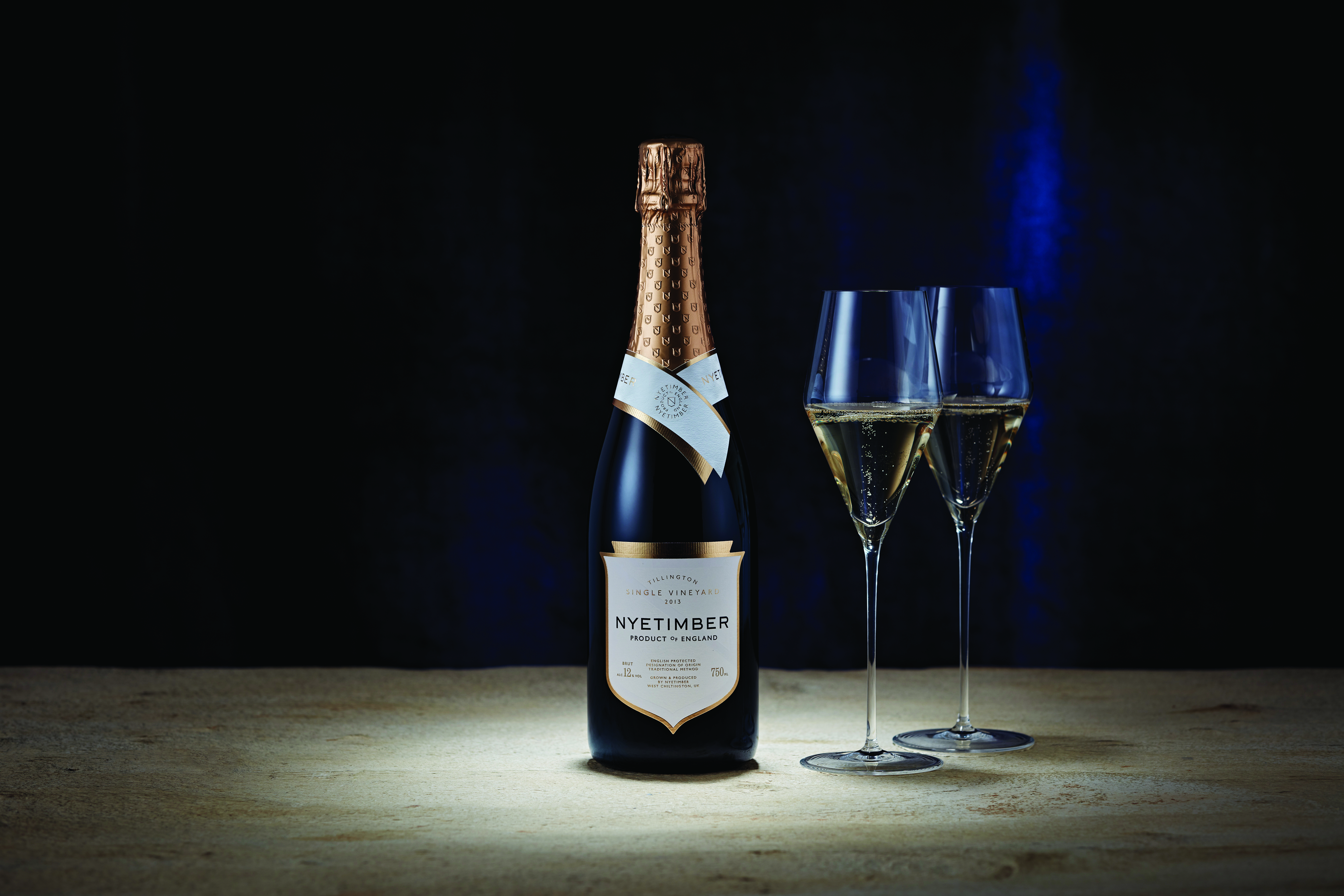 Nyetimber Tillington Single Vineyard 2013
Nyetimber Tillington Single Vineyard 2013
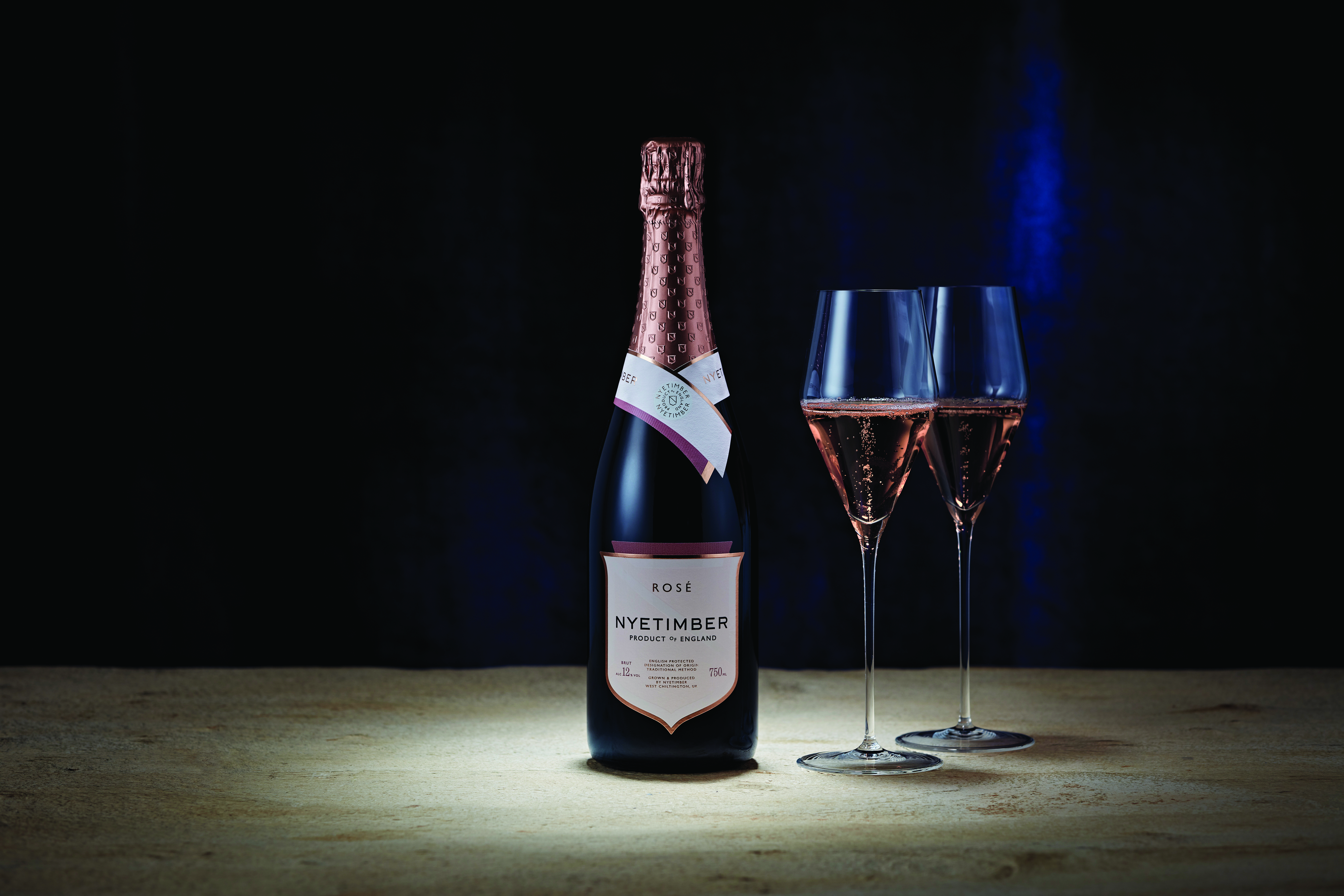 Nyetimber Rosé
Nyetimber Rosé
“Nyetimber’s wines are wines of elegance, delicacy and subtle flavors over power or density. The south of England is a cool climate region — we are more northerly than Champagne — and therefore our wines are blessed with very crisp, clear, wonderful acidity, but it’s very important that the acidity is balanced,” says Spriggs.
“If you hang your hat too heavily on acidity, the wine can be good on the first sip but become difficult by the time you reach the end of the bottle, which is why we age our wines for a significant period of time to develop complexity and finesse.”
- EARLY ISSUES
- THE RISE OF BRITISH BUBBLES
The Rise of British Bubbles
While the English have been making sparkling wine for decades, its rise to prominence is a relatively recent phenomenon.
“The advantages of being a young brand are that we can make every decision based solely on quality,” says Spriggs. “We only use estate-grown grapes and don’t buy or sell any wine, so we have complete control over the production process.”
Optimal soils and climates, combined with major players such as Nyetimber changing consumer perceptions, have driven major investment in English sparkling wine, which (according to trade publication The Drinks Business) now comprises 71 percent of all wine produced in England and Wales. This is set to increase — the area under vine has reportedly increased by 160 percent in the past 10 years to reach 2,888 hectares, with a further two million vines due to be planted this year.
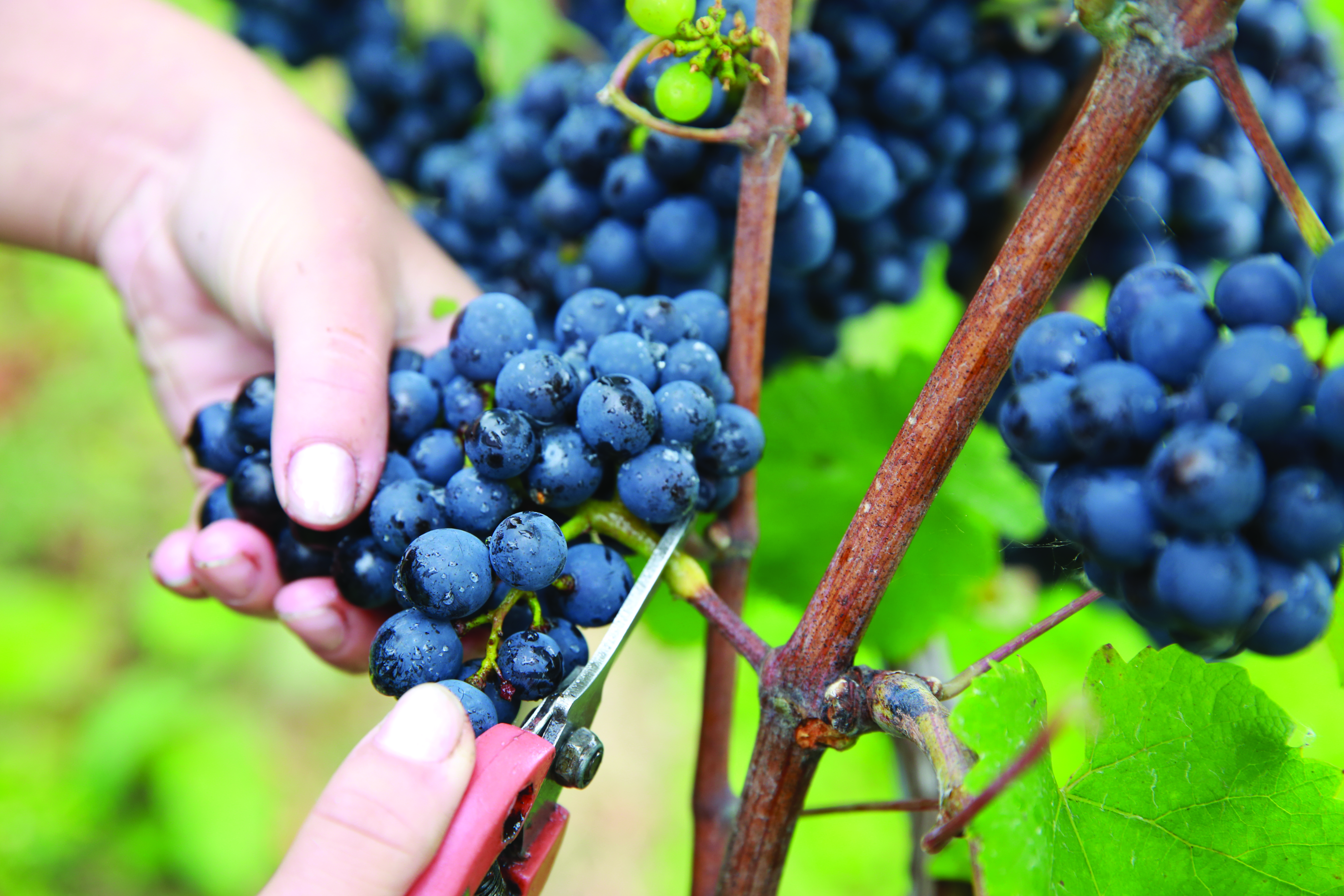
Domestic bubblies have become part of the UK’s drinking vernacular, with sparkling wines from Ridgeview, Gusbourne, Camel Valley and Chapel Down (reportedly served at Kate Middleton and Prince William’s wedding) all being poured at Buckingham Palace’s state banquets.
Even the Champenois have joined the fray — perhaps the surest sign of English sparkling’s potential. Taittinger, the French champagne producer, now makes sparkling wine in Kent. Pommery, meanwhile, was the first of the big Champagne houses to release an English sparkling wine last year, with a 40-hectare site in Hampshire expected to produce its first harvest in 2021.
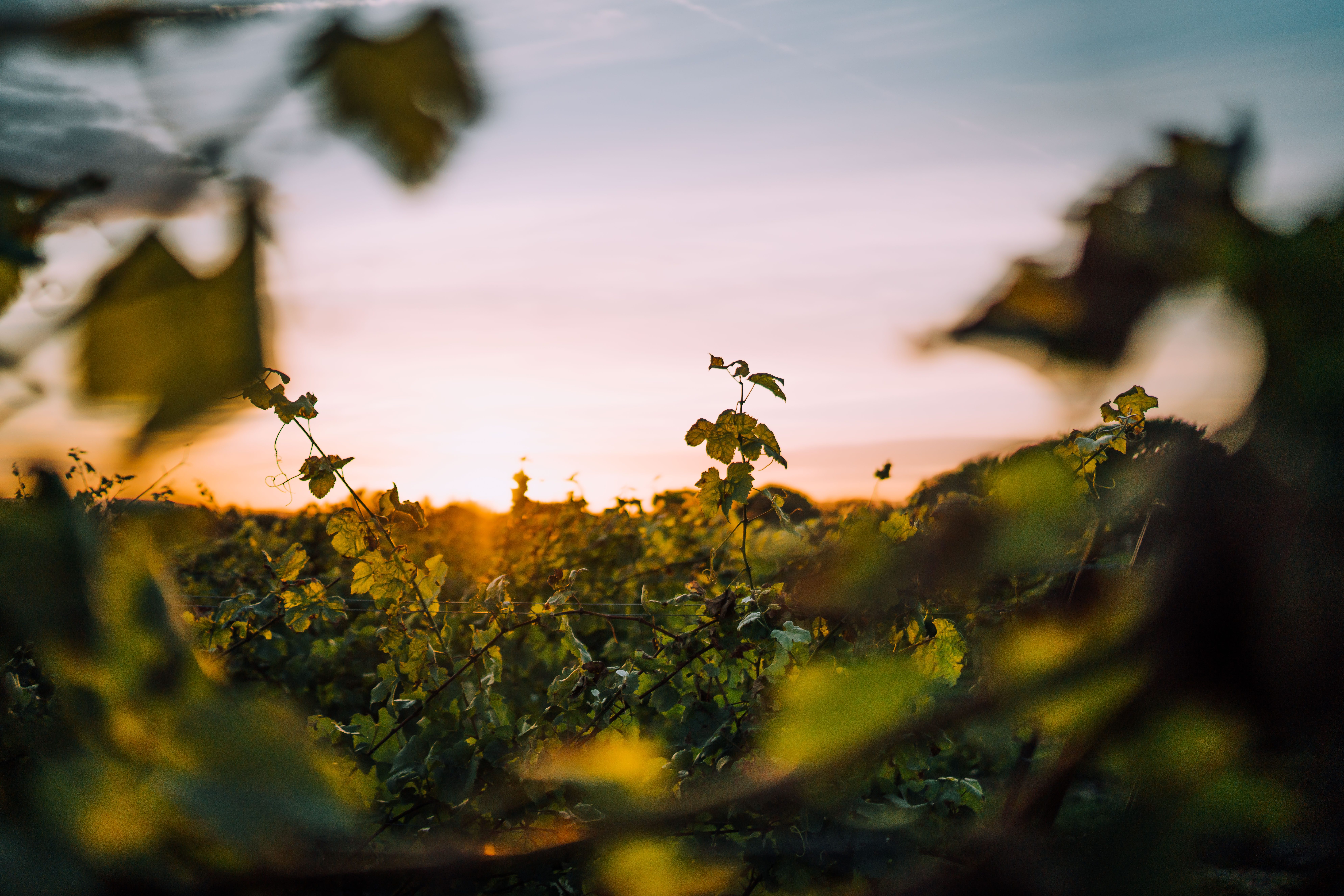
While British sparkling’s output pales in comparison to Champagne’s, producers are eager to show their wines can go head-to-head with top champagnes, both in quality and price. Nyetimber’s Prestige Cuvée 1086 retailed at £150 and £175 for the white and rosé versions respectively, beating Chapel Down’s Kit’s Coty Coeur de Cuvée 2013, which at £99.99 was ranked England’s most expensive wine when it was released in 2017.
Which leads to English sparkling’s (and correspondingly, Nyetimber’s) most pressing challenge ahead — consumer perceptions abroad.
“If we’re legitimately going to compete against any champagnes, we need to price ourselves accordingly,” says Murray Lang, Nyetimber’s newly appointed export manager overseeing international brand recognition and sales in the Asia-Pacific region. Currently, less than 5 percent of Nyetimber’s customers come from Asia, an untapped market where Heerema believes “there is a sophisticated level of wine drinker” whom Nyetimber will appeal to.
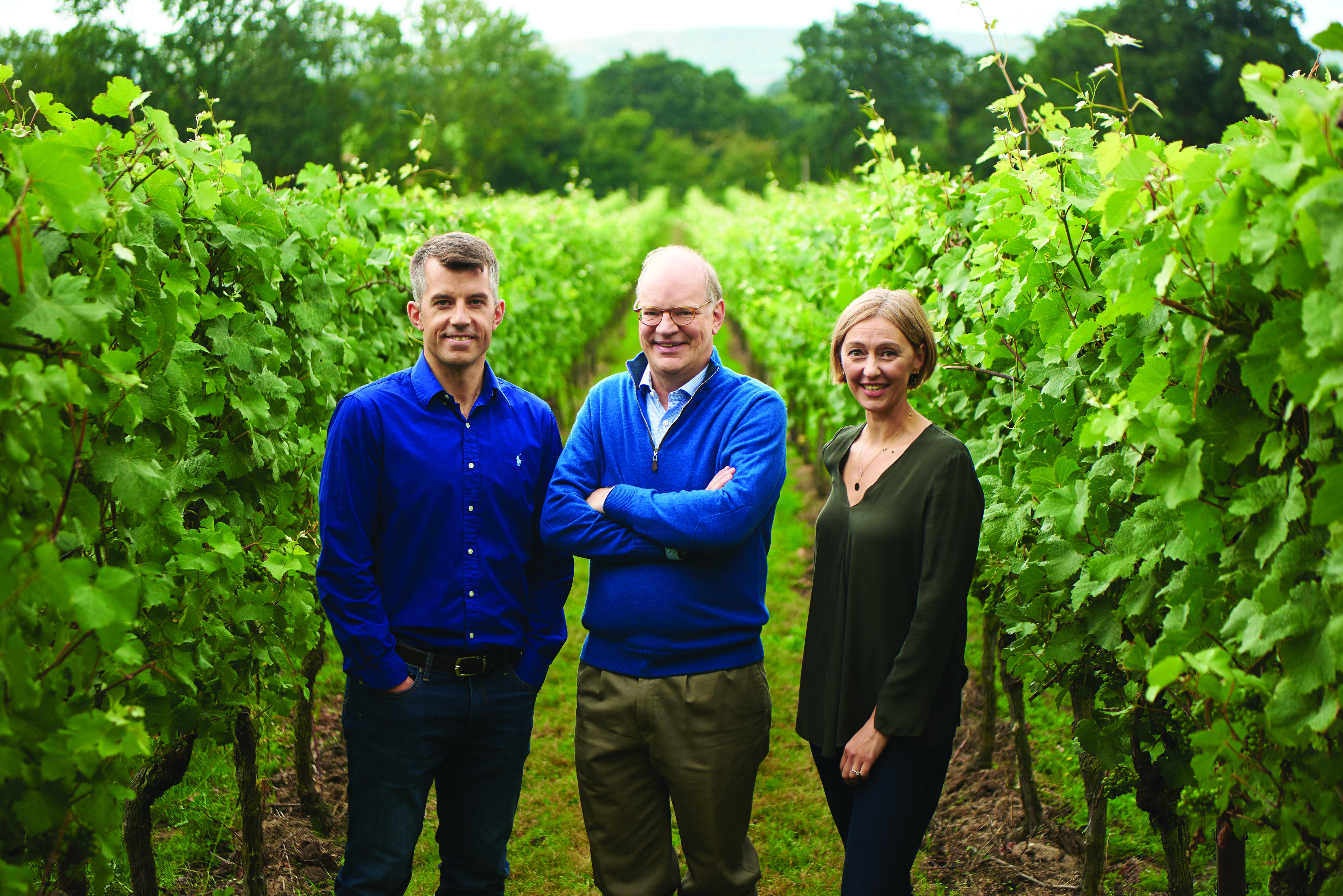 Brad Greatrix, Eric Heerema, Cherie Spriggs
Brad Greatrix, Eric Heerema, Cherie Spriggs
“Hong Kong and Singapore (where Nyetimber is currently distributed) are very champagne dominant — they think English sparkling can’t rival champagne. We’re not a champagne. We are something different and unique,” says Lang, who will next launch Nyetimber’s prestige cuvées in Asia this October.
Nyetimber wines are currently available for purchase at Habitat by Honest Bee, as well as bars and restaurants, including the Shangri-La Hotel; the Ritz-Carlton, Millenia Singapore; Odette; Iggy’s; 1880; and Magic Square, in line with the brand’s Asian market strategy.
“We are looking to work with prestigious hotels, restaurants and bars to educate consumers about our wines,” says Heerema. “We want to show their versatility with food — particularly with flavors found in the cuisines in Asia — and to build the idea of Nyetimber as a brand that is luxurious, sophisticated and perfectly British.”






-ADiN.jpg&w=347&h=240&crop-to-fit)

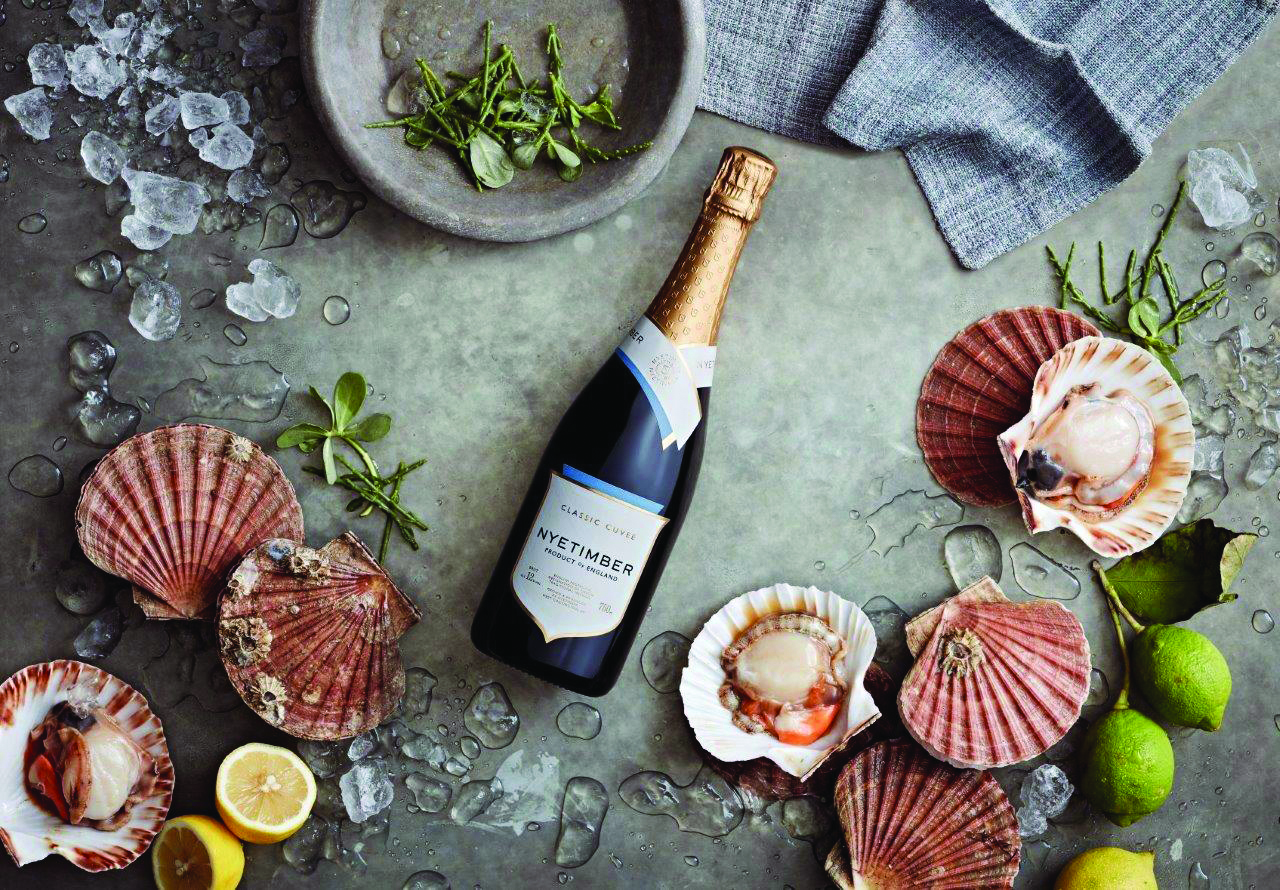
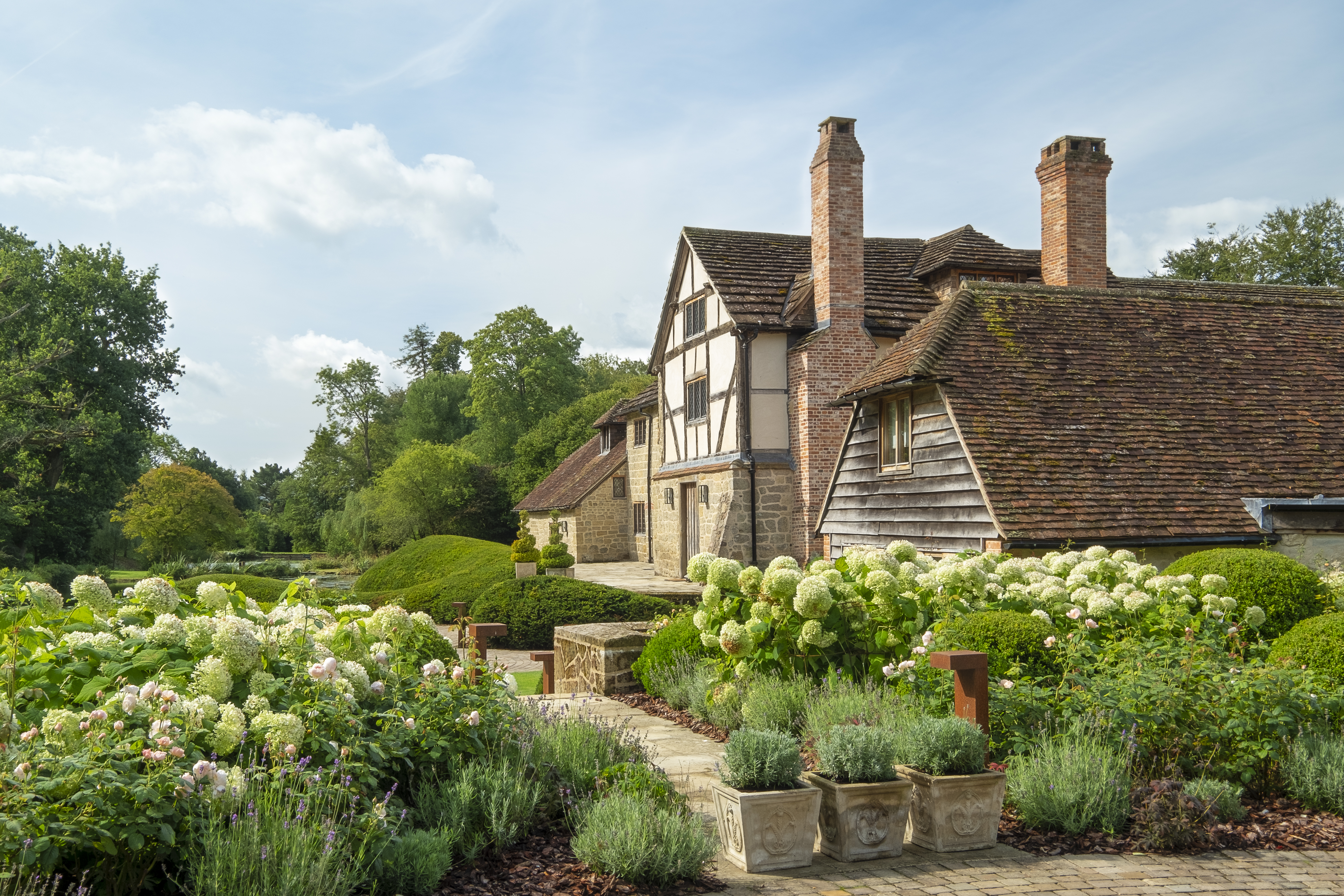
 Nyetimber Classic Cuvee
Nyetimber Classic Cuvee
 Nyetimber Blanc de Blancs 2010
Nyetimber Blanc de Blancs 2010
 Nyetimber Tillington Single Vineyard 2013
Nyetimber Tillington Single Vineyard 2013
 Nyetimber Rosé
Nyetimber Rosé
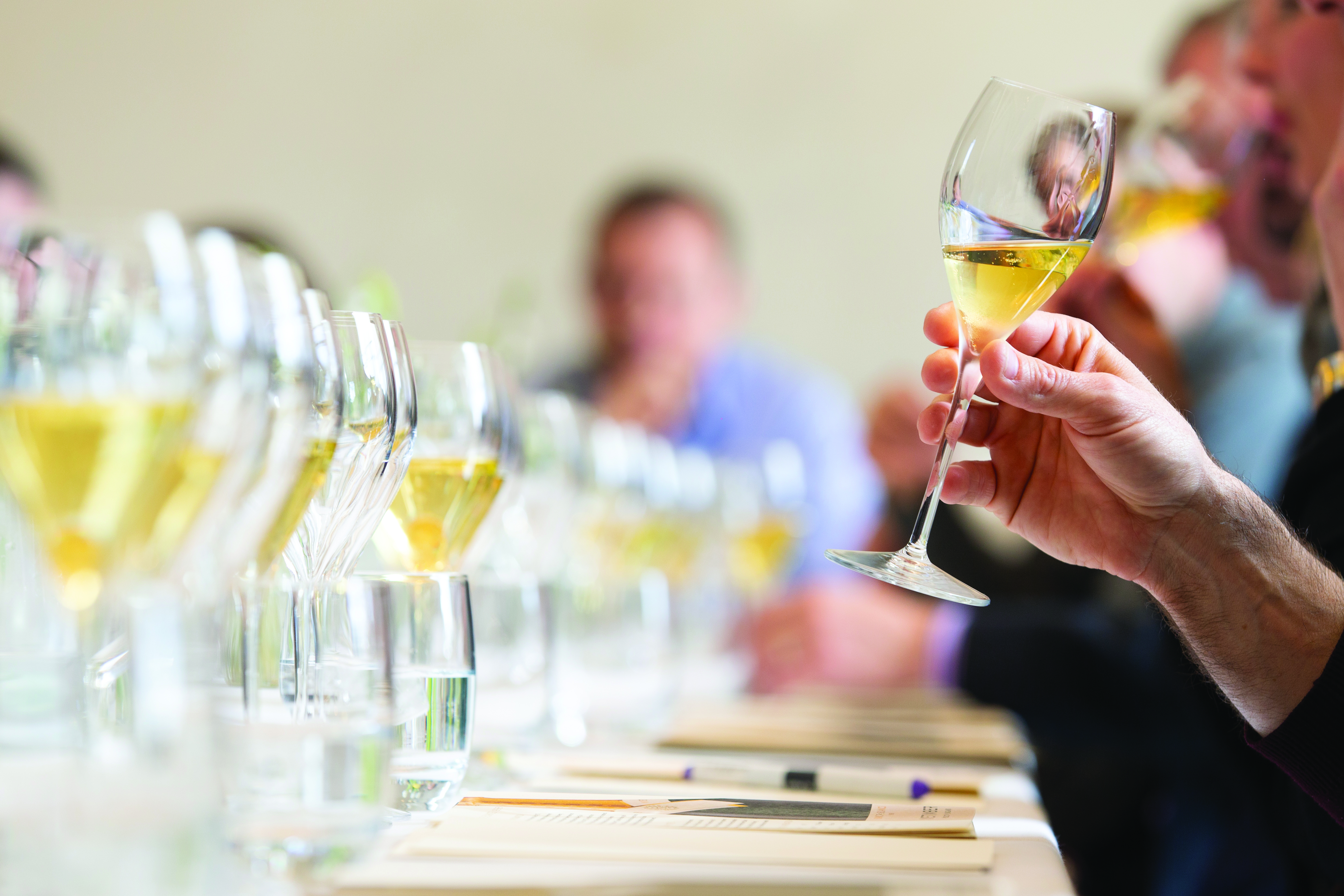


 Brad Greatrix, Eric Heerema, Cherie Spriggs
Brad Greatrix, Eric Heerema, Cherie Spriggs
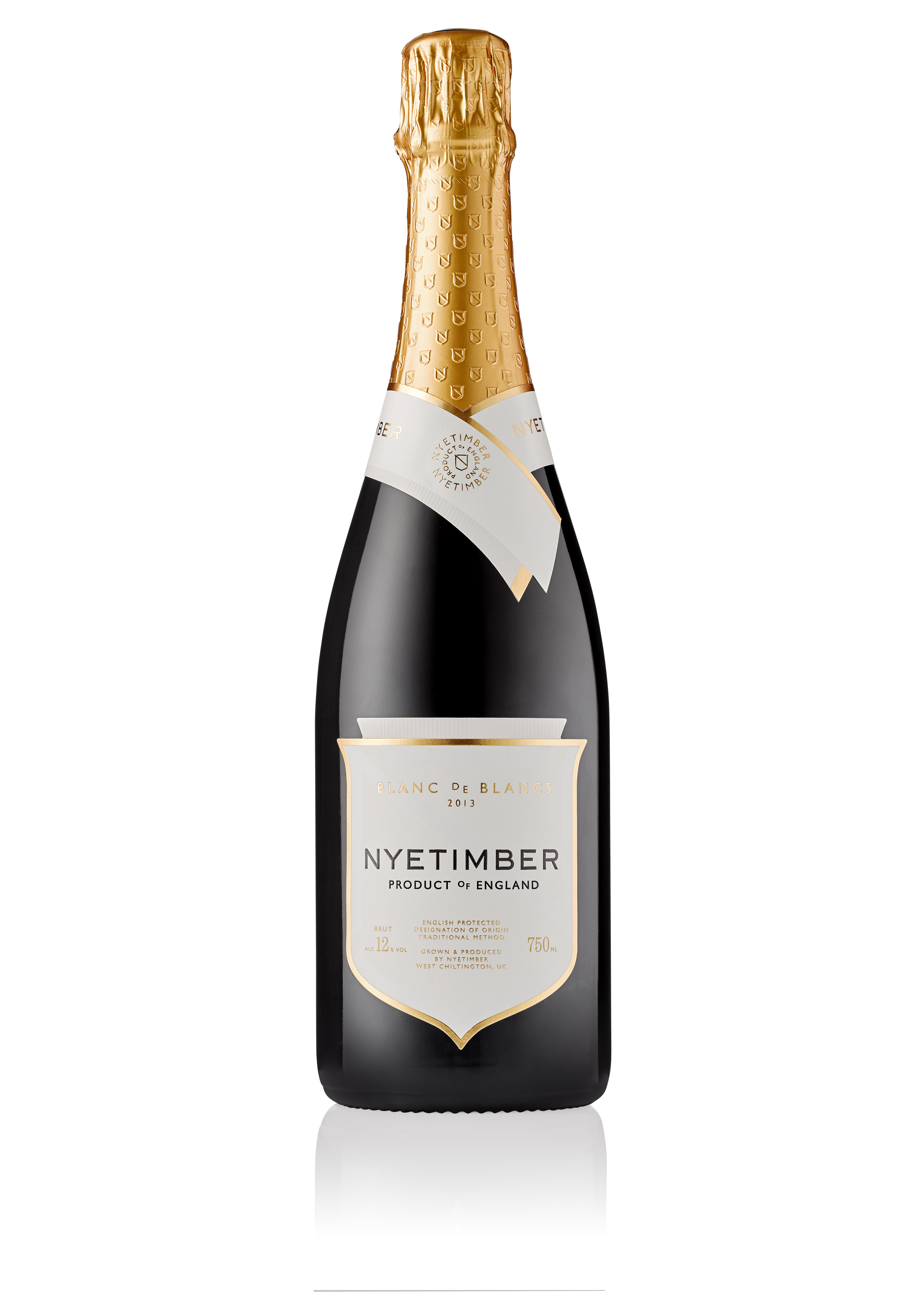
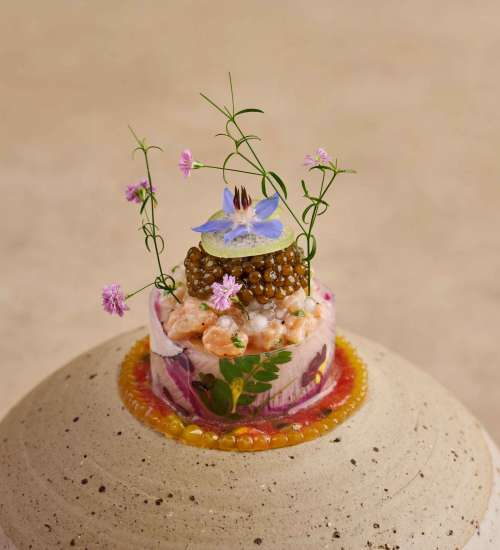
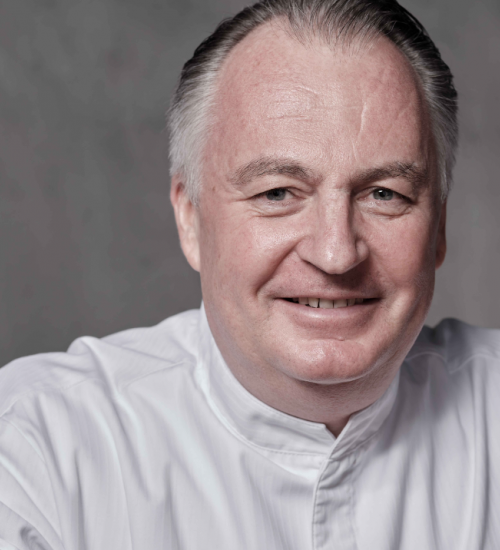
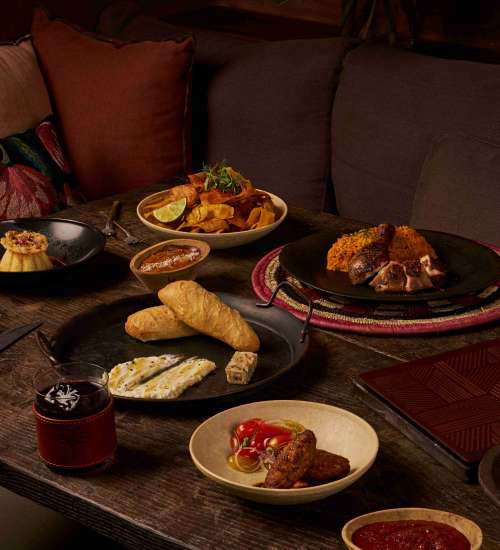
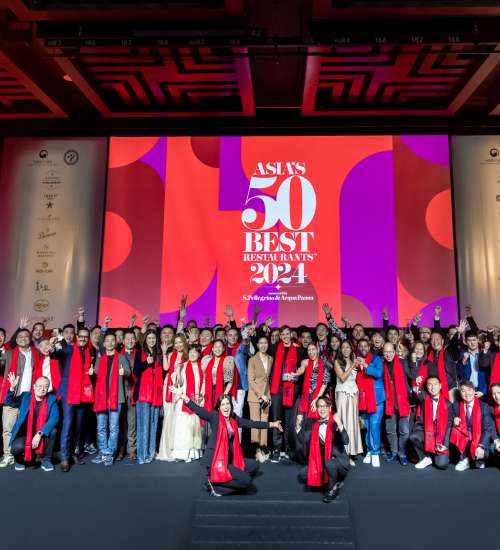
 Back
Back
